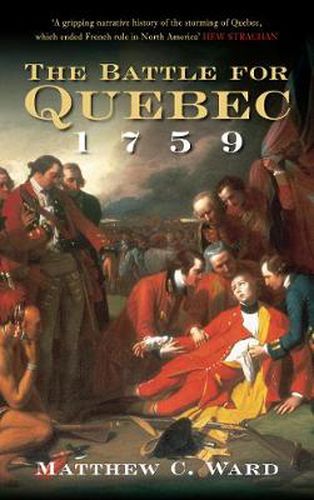Readings Newsletter
Become a Readings Member to make your shopping experience even easier.
Sign in or sign up for free!
You’re not far away from qualifying for FREE standard shipping within Australia
You’ve qualified for FREE standard shipping within Australia
The cart is loading…






On 13 September 1759, British and French forces fought one of the most decisive battles in history, on the Plains of Abraham outside the Canadian capital, Quebec. The British force decisively routed the French, seizing the city and, ultimately, all of Canada. But the struggle for Quebec was far more than one climactic battle: the campaign involved an immense military and naval operation, an eighteenth-century D-Day. Matthew Ward has researched extensively in archives in Britain and Canada to look at the entire campaign for Quebec, from its inception in Whitehall to its ultimate culmination in Montreal in 1760. He has probed beyond the actions of commanders and generals, to examine the experiences of the campaign for the ordinary soldier and civilian. What emerges is not just a picture of bravery and heroism, but also of a campaign which became increasingly brutal and cruel, both sides resorting to practices such as the routine scalping of enemy dead. It is also a surprising picture of the day-to-day, often mundane, lives of civilians and troops many thousands of miles from home.
$9.00 standard shipping within Australia
FREE standard shipping within Australia for orders over $100.00
Express & International shipping calculated at checkout
On 13 September 1759, British and French forces fought one of the most decisive battles in history, on the Plains of Abraham outside the Canadian capital, Quebec. The British force decisively routed the French, seizing the city and, ultimately, all of Canada. But the struggle for Quebec was far more than one climactic battle: the campaign involved an immense military and naval operation, an eighteenth-century D-Day. Matthew Ward has researched extensively in archives in Britain and Canada to look at the entire campaign for Quebec, from its inception in Whitehall to its ultimate culmination in Montreal in 1760. He has probed beyond the actions of commanders and generals, to examine the experiences of the campaign for the ordinary soldier and civilian. What emerges is not just a picture of bravery and heroism, but also of a campaign which became increasingly brutal and cruel, both sides resorting to practices such as the routine scalping of enemy dead. It is also a surprising picture of the day-to-day, often mundane, lives of civilians and troops many thousands of miles from home.